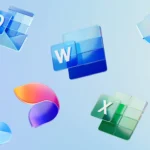The debate for MacBooks vs Windows PCs remains as heated in 2025 as ever. With Apple’s M-series chips now in their fourth generation and Windows 11 refining its hybrid ARM/x86 ecosystem, the choice hinges on your specific needs—not brand loyalty. This guide cuts through the noise, addressing pain points like software compatibility, budget, and productivity to help you make an informed decision.
Key Differences in 2025: Hardware, Software, and Ecosystem
1. Performance: Apple Silicon vs Intel/AMD
MacBooks (M3/M4 Chips):
—————————–Recommendations; Please continue reading below——————————
 ASUS Chromebook C223 11.6″ HD Laptop Shop Now
ASUS Chromebook C223 11.6″ HD Laptop Shop Now
This Asus HD Laptop is an amazon’s choice for ‘chrome computer laptop’ is reviewed by 980+ reviewers that is available at only $249.99. It is ready for productivity and performance while being on the go or travelling, with speedy performance, robust security, and convenience for the user. This laptop has Lightweight 2.2 pound body and with thin and premium metallic finish for a sleek appearance having 11.6 inch HD 1366×768 Anti-Glare Display. The machine is powered by the Intel Celeron N3350 Processor (2M Cache, up to 2.4GHz) for fast and snappy performance including 4 GB DDR3 RAM; 32GB eMMC hard drive; No CD or DVD drive with it. Learn more about this product >>>
- Pros: Industry-leading efficiency and battery life (18–22 hours). Ideal for creative tasks (4K/8K video editing, 3D rendering).
- Cons: Limited upgradability; RAM and storage are soldered.
Windows PCs (Intel Core Ultra/AMD Ryzen 8000):
- Pros: Wider hardware diversity—choose between ultrabooks, gaming rigs, or budget models. Upgradable RAM/storage in many laptops.
- Cons: Battery life lags behind MacBooks (8–14 hours).
Verdict: MacBooks excel in optimized performance; Windows PCs offer flexibility.
2. Operating Systems: macOS 15 vs Windows 11
macOS 15:
- Strengths: Seamless integration with iPhone/iPad, Stage Manager for multitasking, and robust security.
- Weaknesses: Limited gaming support, though Apple Arcade+ has expanded.
- Strengths: Broad software/game compatibility, enhanced AI Copilot tools, and improved ARM/x86 app support.
- Weaknesses: Steeper learning curve for new users.
Free Tools for Cross-Platform Work:
- Parsec: Stream Windows apps to Mac (great for developers).
- HandBrake: Universal video transcoder.

Software and App Availability
- Pros: Exclusive apps like Final Cut Pro, Logic Pro, and optimized Adobe Suite.
- Cons: Some enterprise/engineering software (AutoCAD, SolidWorks) runs better on Windows.
- Pros: Full compatibility with legacy software and niche tools (e.g., proprietary accounting apps).
- Cons: Fewer polished creative suites compared to macOS.
Workaround: Use cloud tools like Figma (design) or VS Code (coding) for cross-platform workflows.
Gaming: Windows Still Leads, But Macs Are Catching Up
Windows PCs:
- Pros: DirectX 13 support, NVIDIA RTX 5000 GPUs, and access to 95% of AAA titles.
- Free Tools:
- Steam: Largest game library.
- OBS Studio: Stream/record gameplay.
MacBooks:
- Progress: Apple’s Game Porting Toolkit 2.0 has boosted compatibility, but only 30% of Steam games run natively.
- Free Tools:
- CrossOver: Run Windows games on macOS.
Verdict: Casual gamers can manage on Mac; hardcore gamers need Windows.
Professional Use Cases of MacBooks vs Windows PCs
1. Creative Work (Video Editing, Design)
- MacBooks: Preferred for Final Cut Pro and superior color accuracy (XDR displays).
- Free Tool: DaVinci Resolve (cross-platform editor).
2. Software Development
- MacBooks: Unix-based terminal and Docker support.
- Windows PCs: WSL 3.0 (Windows Subsystem for Linux) closes the gap.
- Free Tool: VS Code (universal code editor).
3. Business and Productivity
- Windows PCs: Microsoft 365 integration, wider CRM/ERP support.
- MacBooks: Superior Zoom/Teams optimization for hybrid work.
Customization and Upgradability
Windows PCs:
- Pros: Many models allow RAM/SSD upgrades; external GPU support.
- Cons: Bloated pre-installed software on budget laptops.
MacBooks:
- Pros: No bloatware; consistent performance.
- Cons: Zero post-purchase hardware upgrades.
Free Tool: BleachBit (Windows) or OnyX (macOS) to clean system junk.
Security and Privacy
MacBooks:
- Pros: Gatekeeper scans for malware; T2/M-series security chips encrypt data.
- Cons: Targeted less by hackers, but threats are rising.
Windows PCs:
- Pros: Windows Defender (improved in 2025) and BitLocker encryption.
- Cons: Higher malware risk due to market share.
Free Tool: Malwarebytes (cross-platform scanner).
Cost Analysis and Long-Term Value
| Factor | MacBook | Windows PC |
|---|---|---|
| Starting Price | $1,299 (M3 MacBook Air) | $599 (Budget models) |
| Resale Value | 60–70% after 3 years | 30–40% after 3 years |
| Repair Costs | High (Apple-certified parts) | Moderate (Third-party options) |
Verdict: MacBooks cost more upfront but hold value; Windows PCs offer budget flexibility.
Free Tools to Enhance Your Experience
- LibreOffice: Free alternative to Microsoft Office (cross-platform).
- GIMP: Photoshop replacement for photo editing.
- Parsec: Low-latency remote access between systems.
- iCloud/OneDrive: Sync files across platforms.
FAQs: MacBooks vs Windows PCs in 2025
Q1: Can I run Windows on a MacBook?
Yes via Parallels Desktop, but Windows 11 ARM lacks some x86 app support.
Q2: Are MacBooks good for coding?
Yes—Unix-based Terminal and Docker are dev favorites. Windows now rivals with WSL 3.0.
Q3: Which is better for students?
Windows PCs for budget-conscious majors; MacBooks for design/media students.
Q4: Do MacBooks last longer?
Yes. Average lifespan: 6–8 years vs 4–6 for Windows PCs (Consumer Reports 2025).
The Bottom Line
Your choice depends on three factors:
- Use Case: Creatives/developers lean Mac; gamers/budget users choose Windows.
- Budget: Windows offers more price points; Macs promise longevity.
- Ecosystem: Deep iPhone/iPad integration? Mac. Microsoft/Android user? Windows.
Still stuck? Prioritize software needs first. Test both systems at a store, or use cross-platform tools to bridge gaps.
Now loading...






